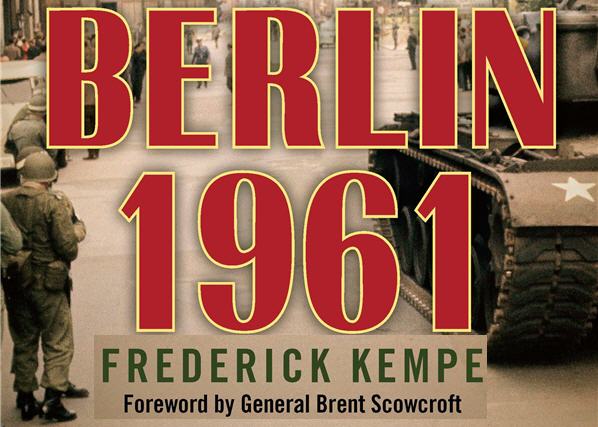
Soviet Premier Nikita Khrushchev was still waiting for John F. Kennedy’s answer to his multiple pleas for an early summit when the U.S. president delivered his apocalyptic State of the Union address, which spoke of the Soviet and Chinese quest for world domination, as the first of several perceived indignities.
The shock waves of Kennedy’s words were reverberating through the Kremlin when two days later, Khrushchev suffered the further humiliation of watching Kennedy’s America test launch its first Minuteman intercontinental ballistic missile.
Four days after that, McNamara shamed Khrushchev again by dismissing as “folly,” during a Pentagon press briefing, Khrushchev’s declaration that he was expanding his missile superiority against the U.S. Though McNamara didn’t mention the U.S. superiority of 6,000 warheads to about 300 for the Soviets, he nevertheless had publicly called Khrushchev’s bluff.
The Soviet leader had to rethink his approach to the U.S. or pay the political consequences. On February 11, Khrushchev returned earlier than scheduled from a trip to Soviet farming regions for an emergency Presidium meeting, where his rivals called for a policy shift to address what they regarded as new American militancy.
About the same time, President Kennedy was taking a more reasonable turn toward Soviet policy. On the same day Khrushchev was meeting with his party leadership, Kennedy convened the first meeting of his Soviet experts. Former U.S. Ambassador to Moscow Charles “Chip” Bohlen was surprised how few prejudices Kennedy had about the Soviet Union, given his strident State of the Union message. The meeting would become typical of how the president would reach decisions. He would bring together the top minds on an issue and then let them fire off sparks while he provoked them with probing questions.
At the end of the group’s second session, ten days later, President Kennedy decided he was finally ready to meet Khrushchev at a personal, informal meeting so that he could get a firsthand impression of Khrushchev and better decide how to deal with him. “It is my duty to make decisions that no adviser and no ally can make for me,” he said. To ensure those decisions were well-informed, he wanted to size up the Soviet leader personally.
So on the evening of February 27, U.S. Ambassador to Moscow Llewelyn “Tommy” Thompson arrived in Moscow with Kennedy’s first letter to Khrushchev, suggesting the get-together. It had taken the ten weeks of transition after Kennedy’s election and the first month of his presidency before Kennedy had been ready to respond to Khrushchev’s multiple attempts to gain an audience.
Khrushchev, however, no longer wanted to meet. Soviet Foreign Minister Andrei Gromyko apologized to Thompson that Khrushchev could not receive him. Having returned to his agricultural tour, Khrushchev delivered a speech in Sverdlovsk that reflected his surly mood.
“The Soviet Union has the most powerful rocket weapons in the world and as many atomic and hydrogen bombs as are needed to wipe aggressors from the face of the Earth,” he said. It was a world away from his New Year’s toast calling Kennedy’s presidency “a fresh wind” in relations.
Through the misreading and miscommunication between the two major leaders of their time, the Kennedy-Khrushchev honeymoon had ended before it had begun.
Fred Kempe is president and CEO of the Atlantic Council. His latest book, Berlin 1961, was published May 10. This blog series originally published by Reuters.
Image: berlin1961-cropped.jpg
